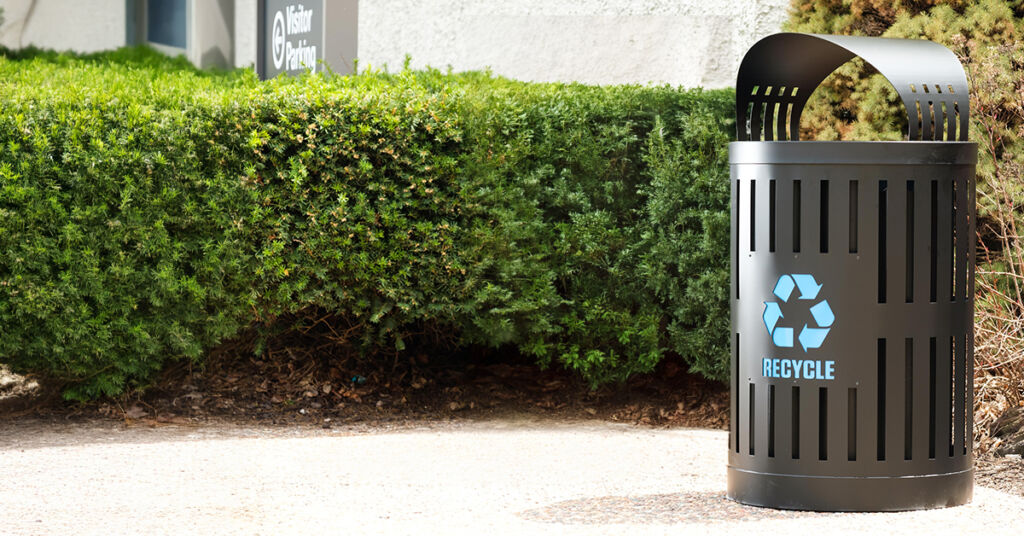November 20, 2024
Embracing Zero Waste: Practical Approaches Across Key Industries
Discover how schools, stadiums, hotels and restaurants can move towards zero waste with customized approaches and targeted solutions.

As businesses face increasing pressure to reduce environmental impact, zero-waste strategies present a path to eliminate waste entirely. Achieving zero waste means rethinking our relationship with materials and resources, aiming to reduce what we discard and transform waste into new forms of value.
This article explores how various industries can move closer to this goal, with practical strategies and solutions tailored to their specific challenges.
Hotels & Hospitality
Hotels produce a diverse mix of waste, from guest-generated trash to operational waste from daily activities. The average 200-room hotel uses 300,000 single-use plastic items per month. One way to reduce waste is by adopting reusable amenities (think shampoo dispensers, soap dispensers, etc.) to reduce the reliance on single-use products. There are even companies that will recycle soap by taking used soaps, sanitizing them and making them new again.
For guest waste, one strategic approach involves integrating clearly marked recycling bins in guest rooms and common areas to make recycling an easy option for guests. Commercial Zone® offers elegantly designed recycling bins that blend seamlessly into hotel décor, enhancing guest participation in the hotel’s recycling efforts without compromising the aesthetic value.
Schools & Universities
Educational institutions, from primary schools to universities, can become epicenters for cultivating a culture of sustainability. By choosing the right receptacles, adopting strong compost and recycling programs plus engaging students and staff in sustainability practices, schools can dramatically reduce their waste footprint. Implementing zero-waste initiatives, such as zero-waste lunches is one effective strategy. By choosing dishwasher-safe, reusable cutlery, plates and bowls, schools can eliminate 3.5 million pieces of disposable items and save $100,000 annually.
For items that need to be disposed of, schools can further this cause. Site furnishings like Commercial Zone waste, recycling and compost receptacles designed for schools can help make smarter disposal a part of daily life on campus.
Stadiums & Large Venues
The challenge of managing waste at large venues like stadiums is magnified by the large volumes of waste generated in a short period during events. Strategies such as deploying reusable cup programs and adopting multi-stream waste, recycling and compost receptacles throughout the venue can significantly improve waste management and reduce landfill-bound waste.
Our guide to improving waste programs at stadiums offers valuable insights into selecting appropriate receptacles and planning waste reduction strategies that cater to massive crowds.
Food service Operations
Restaurants, cafeterias and other food service providers face the constant challenge of managing organic waste and disposable packaging. The key to improvement lies not only in better waste management but in redesigning the waste generation process. By implementing robust waste, recycling and compost systems, businesses can turn food waste into a resource. Additionally, transitioning to recyclable or compostable packaging can significantly reduce their landfill contributions.
To aid in these efforts, choosing the right tools, such as food service receptacles from Commercial Zone, can make the process more efficient and effective, encouraging proper waste separation and disposal.
Achieving zero waste requires commitment and creativity across all levels of operation. With tailored strategies and the right set of tools, businesses across these diverse industries can make significant strides toward reducing their environmental footprint.
By embracing these practices, not only do businesses contribute to environmental sustainability, but they also build a positive brand image and improve their bottom line. The path to zero waste may present challenges, but it’s an opportunity to reinvent how we think about resources and waste in our industries.
